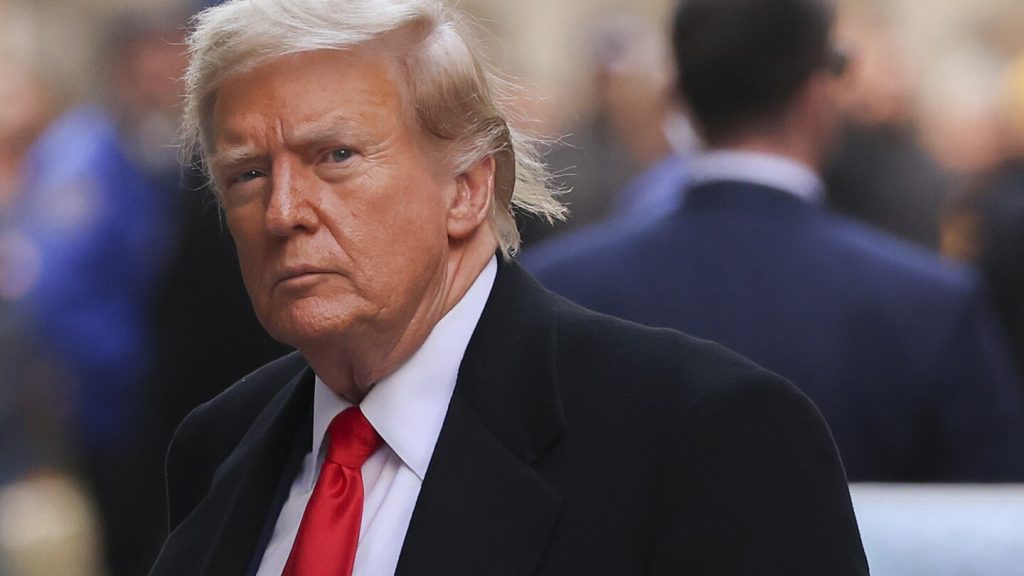A New York judge has issued a gag order against former President Donald Trump, barring him from commenting on witnesses, prosecutors, court staff, and jurors in his upcoming hush-money criminal trial. The judge cited Trump’s history of making “threatening, inflammatory, denigrating” remarks about individuals involved in his legal cases as the reason for the order. This decision follows a similar gag order in Trump’s Washington, D.C., election interference case and comes as the trial is set to begin on April 15, marking the first criminal trial of a former president.
Trump’s lawyers opposed the gag order, arguing that it would violate his free speech rights. However, the judge, Juan M. Merchan, determined that protecting the integrity of the trial outweighed concerns about the First Amendment. The order prohibits Trump from making or directing others to make public statements about potential witnesses and jurors, as well as interfering with or harassing court staff, prosecutors, or their families. Violating the order could result in contempt of court, fines, or even jail time for Trump.
The hush-money case against Trump involves allegations that he falsely recorded payments to his former lawyer, Michael Cohen, as legal fees when they were actually related to covering up negative stories about Trump during the 2016 campaign. Trump has pleaded not guilty to charges of falsifying business records, which carry a potential prison sentence, and denies any wrongdoing. The judge has warned Trump against statements that could incite violence or jeopardize safety, but has not completely silenced him, acknowledging his status as a former president and presidential candidate.
As Trump’s trial date approaches, the judge has taken steps to ensure a fair and secure process. Jury names will be kept confidential to prevent harassment, and the gag order prevents Trump from attacking witnesses or engaging in disruptive behavior. Trump’s tendency to publicly criticize those involved in the case led to the imposition of the gag order. The judge has indicated that Trump will have opportunities to advance his candidacy and speak but must do so within the boundaries set by the court.
Despite the restrictions on Trump’s speech, he has continued to criticize the hush-money case and its key figures. His social media posts and public statements have raised concerns about safety and integrity. The judge’s decision to impose a gag order follows previous instances in which Trump faced consequences for violating court rules. As the trial date approaches, the judge aims to prevent Trump from using inflammatory language that could disrupt the proceedings. Trump’s outspoken nature may pose challenges for ensuring a fair trial.


